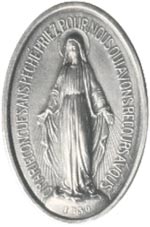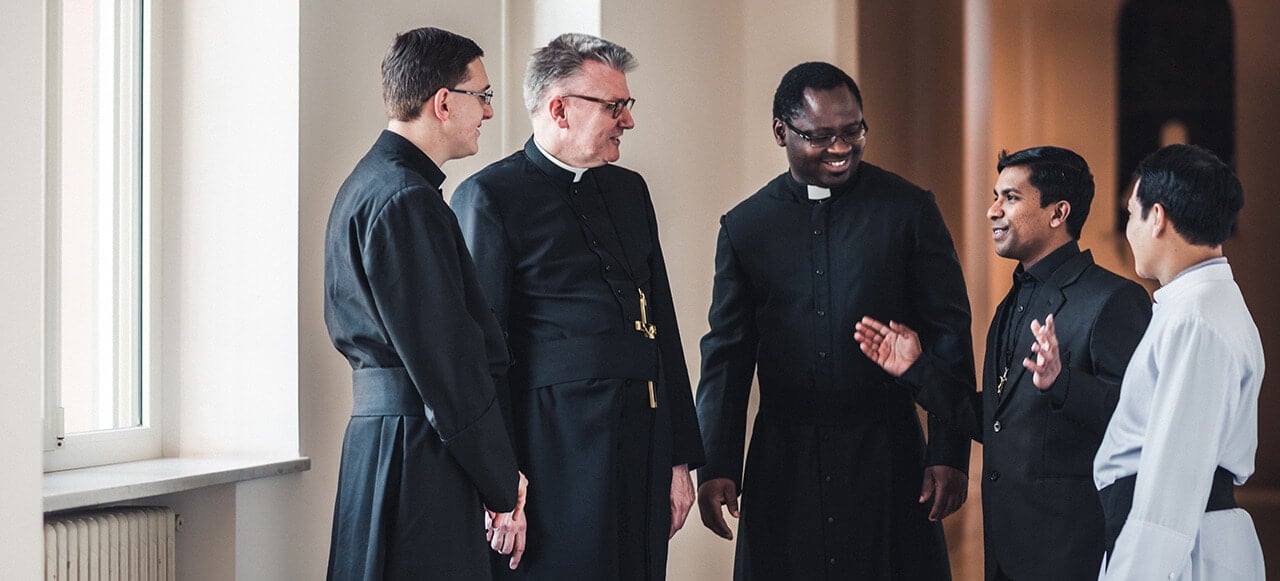In 1821 Mexico shook off the yoke of Spain and reclaimed its independence, setting itself up as a republic. But for about forty years it was troubled with rivalries that frequently degenerated into all sorts of crimes. The Oblates, in Brownsville Texas since 1849, were on the left banks of the Rio Grande River, but it was very difficult for them to set a foot in Mexico. In 1859 the Oblates Pierre Parisot and Rigomer Olivier we able to give a first mission in Cruillas, thus slightly arousing the poor inhabitants of an area where ignorance was the condition of the majority. One year later, at the request of the Bishop of Monterrey, Fathers Olivier and Sivy settled in Victoria, capital of the Province of Tamaulipas, 500 kilometers south of Brownsville. In 1863 the Oblates took charge of a Marian sanctuary dedicated to Our Lady of Refuge. However in 1866 a new wave of persecutions forced them to return to Texas. It was only in 1902 that the Oblates could return to Puebla where they looked after the local college and served two parishes near Mexico City. Once again, for a third time, religious persecution forced them to leave. Finally in 1942 a permanent residence could be established. As of 1998 we find a vice-province in Mexico, counting about 40 Oblates.

In 1866, during the persecution, a Spanish lad who had been fighting with the Texan army became a prisoner and was incarcerated at Matamoros, Mexico. Since the young man was condemned to death, and he stubbornly refused the intervention of the regular military chaplain, an appeal was made to the Oblates to try to persuade him. Father Joseph-Marie Clos engaged him in conversation. All arguments seemed futile, so the priest ended up saying: “My friend, I intend to stay as your companion all night. Now that everyone else has abandoned you, it may be comforting to note that at least the minister of Jesus Christ still loves you!” Little by little the Oblate brought up the subject of Confession. It was to no avail. He wouldn’t hear a thing about religion. Before leaving for his supper the priest asked him if he would accept a small medal of the Blessed Virgin. He immediately answered: “With that, no problem”. And he even put it around his neck by himself.
While the priest was away, the thoughts that had been shared by the Oblate, and even more the strong influence of the Miraculous Medal, had their effect on this poor young man. He lost some of his pride. This allowed the priest to approach him with more warmth. Finally, the prisoner could hold back no longer. He fell on his knees and acknowledged all the faults that had been troubling his conscience for many years. At about one in the morning he received Holy Communion in the best of dispositions. Three hours later, he was led to his death penalty. “As we were proceeding” remembered the priest, “I asked him if he loved the Blessed Virgin”. “How could I not love her?” he responded, “She is my only hope.” These words, uttered with Faith in such circumstances were, beyond any doubt, sincere. His last words began with the gentle name of Mary: “Holy Mary, pray for us sinners, now and at the hour of our death.”
